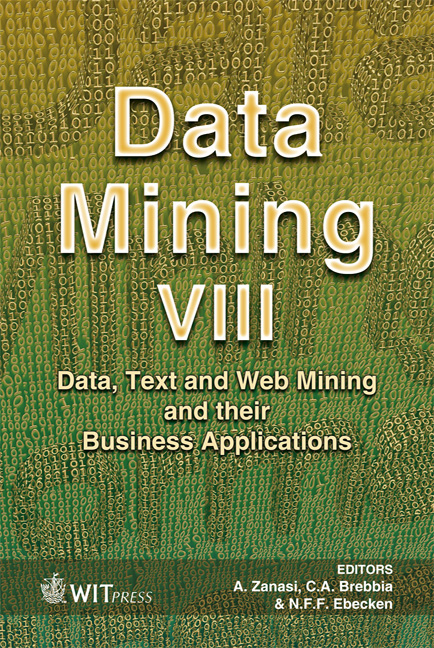A Generalized Algebraic Approach To Finding Rough Set Approximations And Generating Logic Rules
Price
Free (open access)
Volume
38
Pages
10
Published
2007
Size
302 kb
Paper DOI
10.2495/DATA070011
Copyright
WIT Press
Author(s)
D. Sitnikov, O. Ryabov, O. Titova & O. Romanenko
Abstract
The rough set concept is a relatively new mathematical approach to vagueness and uncertainty in data. The rough set theory is a well-understood formal framework for building data mining models in the form of logic rules, on the basis of which it is possible to issue predictions that allow the classification of new cases. The indiscernibility relation and approximations based on this relation form the mathematical basis of the rough set theory. The classical topological definitions of rough approximations are based on this relation. Unlike the classical approaches it is possible to define rough approximations in an algebraic way. This paper represents a generalization of the algebraic approach suggested by the authors earlier. We use a set of discrete characteristic functions taking on values from finite sets (not necessarily Boolean values) and operations on them including comparison and Boolean operations, which we call the approximation language. We use the terms \“exact upper approximation” and \“exact lower approximation” to stress the fact that there can exist a variety of approximations but it is always possible to select the approximations that cannot be improved in the terms of the approximation language. We consider the process of generating logic rules based on the exact approximations in the case of arbitrary discrete characteristic functions taking on values from finite sets. Logic rules are naturally obtained from predicate formulae for the exact approximations. The introduced approach allows the generation of logic rules quickly and efficiently since only comparison operations with discrete values and Boolean operations with binary values are used to produce logic formulae.
Keywords





